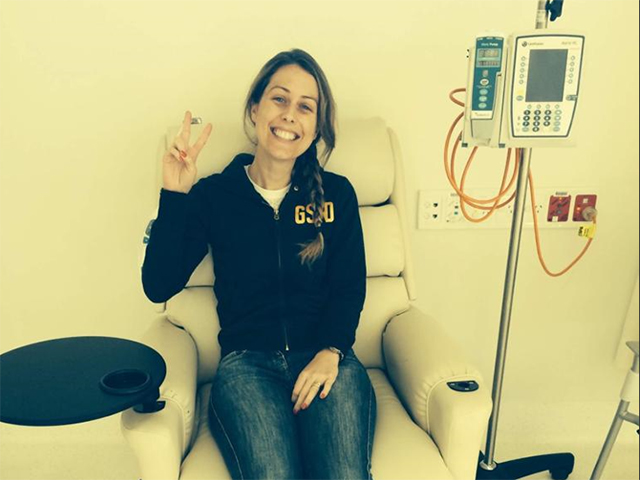Breast Cancer Awareness Month

TNBC is an aggressive type of breast cancer that is most commonly diagnosed in women under the age of 50. It's different to other types of breast cancer because it doesn't have the three hormone receptors usually found on the surface of breast cancer cells, which mean many treatment options are unsuitable. The treatments that have the greatest rate of success are also those with the most debilitating side effects, such as chemotherapy and radiotherapy.
TNBC survivor and Cure Cancer ambassador Nicole Freeman knows this only too well. Ten years ago, at just 32 years old, Nicole discovered a lump in her left breast. Four days later, she was diagnosed with triple negative breast cancer. The 5-year survival rate for Stage 4 TNBC is just 32%. Fortunately, Nicole's cancer was caught before it progressed to that stage. She underwent more than two years of grueling treatment which ultimately saved her life. But it also took a huge toll on her young body.
"It's the small, cumulative losses during chemotherapy – losing my hair, my nails, my eyebrows, taste sensation, circulation in my hands – that made me look and feel like a sick person, despite my efforts to maintain a semblance of normalcy. Those things can really affect someone's mental state, on top of the hardship of what the body is physically enduring," says Nicole.
We urgently need more research into TNBC, so that novel treatment options can be discovered and women can go on to live full, healthy lives. Thankfully, Cure Cancer-funded researchers like Dr Chen Li are dedicating their lives to discovering them.
Dr Chen is particularly interested in the application of immunotherapy to treat TNBC – a type of cancer treatment that helps the immune system recognise and attack cancer cells. Immunotherapy has proven incredibly successful in overcoming other forms of the disease, but is under researched and therefore not currently available as a treatment for TNBC.
One of the ways that cancer evades immune surveillance (and therefore prevents immunotherapy from being successful) is by presenting antigens that are not recognised as a problem. Chen's team has found a way to modify the antigens within TNBC so that they can no longer 'hide' from the immune system. The outcomes of this pioneering project could result in new ways to diagnose triple-negative breast cancer in its early stages, and identify new treatment methods.
This October, it's crucial that we draw attention to the danger TNBC poses to young women in particular, and why new treatment options are so desperately needed.
MORE



